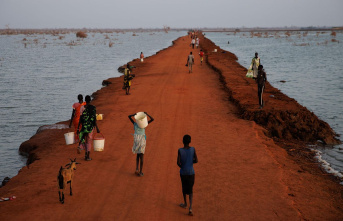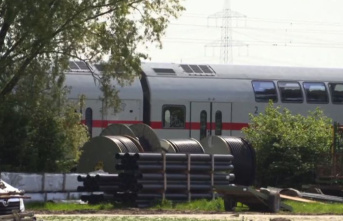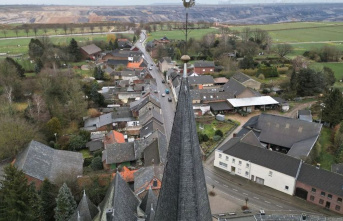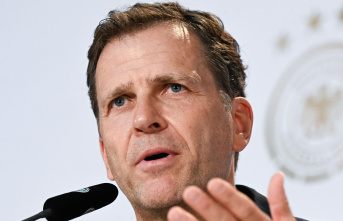Hans-Joachim Watzke had an exclusive look when the next football construction site opened up right in front of his eyes. The 63-year-old sat horrified in the dark DFB suit with the four world champion stars in the grandstand of the Al-Bait Stadium when the national team lost the World Cup against Costa Rica - and only a few hours later he had another important role in German football.
DFB President Bernd Neuendorf brought the crisis-tested and experienced Bundesliga manager to his side as an expert and decision-maker. Actually, Watzke should be the fourth man in a prominent group in which, according to media reports, the future of German football should be discussed on Wednesday.
But that will never happen again in this form, since the consequences of the German failure have already been drawn in the personal situation of Oliver Bierhoff. The 54-year-old DFB director is leaving the German Football Association after 18 years, both parties have agreed to terminate the contract, which runs until 2024. Neuendorf, Watzke, Bierhoff and national coach Hansi Flick originally wanted to meet for an in-depth analysis. It was initially unclear how the work would continue and what Flick's future would look like.
Most Influential Football Manager
Watzke has risen to become the most influential football manager in this country. Even if he "does not think in such categories himself," as he said in an interview with the German Press Agency in the summer. This week, however, could reveal the true meaning that combines the managing director of Borussia Dortmund, 1st DFB vice president and head of the DFL supervisory board. Is it possible that Watzke is cleaning up the amateur and professional camps at the same time?
Bierhoff is no longer in a responsible position at the DFB. According to "Kicker", Donata Hopfen is about to be replaced as CEO of the German Football League (DFL) after less than twelve months. The 46-year-old is said to have lost the trust of the supervisory board led by Watzke. So there's a lot to do for Watzke, who "didn't push himself" for the jobs beyond his BVB: "I probably had an influence before, now I'm responsible. That's the difference."
Bierhoff stood for the sporting downward trend
In contrast to the national coach Flick, who only started 16 months ago, Bierhoff stood for the almost continuous sporting downward trend of the national team since the World Cup triumph in 2014. "Unfortunately, I have no arguments with three bad tournaments," said Bierhoff himself in a quiet voice after the next World Cup. Preliminary round in Qatar.
Flick, if he stays in office, could now be assigned a sporting director, a kind of manager like Bierhoff was in his early DFB years. A world champion with public appeal, for example - someone like Sami Khedira?
Perhaps Watzke will also be more closely tied to the national team in the long term. Something like this happened in earlier times of crisis. After the EM debacle in 2000, Karl-Heinz Rummenigge was assigned to DFB team manager Rudi Völler as task force manager. And in the spring of 2006, after a 4-1 loss against Italy, everyone feared for success at the home World Cup, the "Task Force" was revived, with Bayern manager Uli Hoeneß as spokesman for the clubs. Like Watzke now in Qatar, Hoeneß had followed the international match as a grandstand guest in Florence.












